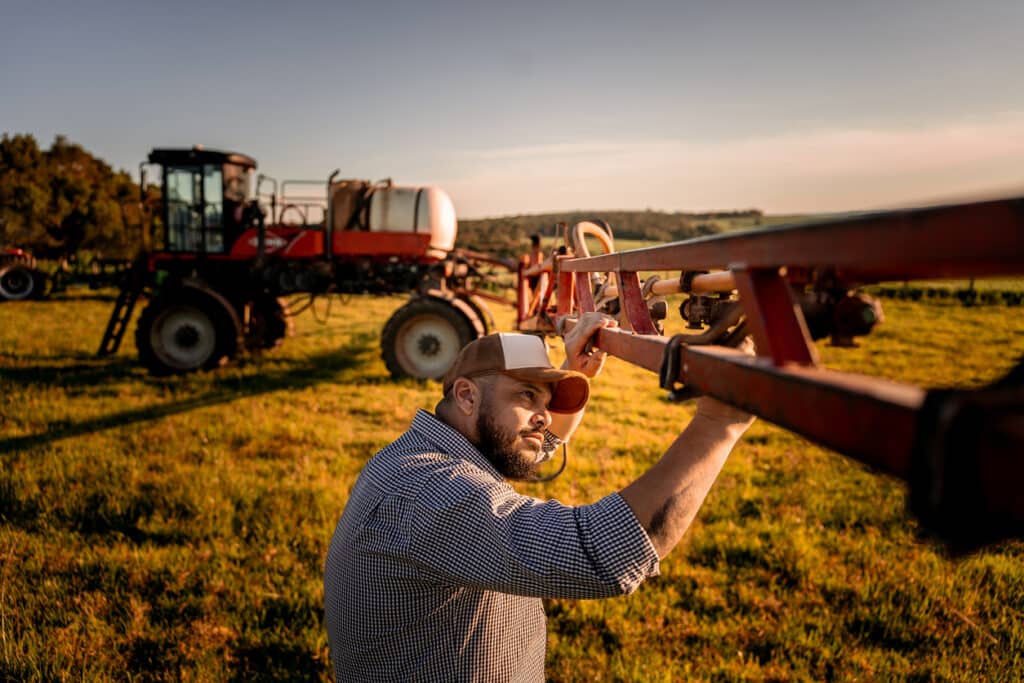Driving through Katy farmland gives you a pleasant feeling of peaceful and serene nature. Unfortunately, when you get a little closer, farming can produce more noise than you’d initially expect. The biggest culprit behind this noise is farming equipment.
How Loud is Farming Equipment?

We measure sound in decibels (dB). Extended or repeated exposure to noise at or above 85 dB can result in hearing loss. The Texas A&M AgriLife Extension’s Farm and Ranch Safety System listed a few common farming equipment noise measurements:
- 80 dB: Tractor idling, conveyor belts, barn cleaner (automated system to remove waste) and elevators
- 90 dB: 50% loaded tractor, blower, compressor and combine
- 100 dB: 80% loaded tractor, power tools and squealing pigs
- 120 dB: 100% loaded tractor, old muffler and old chainsaw
When you work around loud noises, you must take precautions to protect your hearing.
How Can I Protect My Hearing?
A combination of farm animals and noisy equipment can leave your ears feeling overwhelmed. Luckily, you don’t have to change careers to protect your hearing. Consider a few of these tips to minimize your noise exposure on the farm:
- Keep up with machine maintenance. Poorly maintained machines tend to be louder. Make sure to keep your machinery well-oiled and replace worn-out or broken parts as necessary.
- Use sound insulation. You can reduce noise in tractors, combines, harvesters and other machinery by applying sound-insulating materials to noisy areas like floors, cabs and engine components. Standard insulation options include liquid coatings, foam insulation and peel-and-stick vibration-blocking sheets.
- Install mufflers. You’ve probably noticed that unmuffled cars tend to be louder. That’s also true of farming equipment. Installing specialty noise-reducing mufflers on your equipment is a great way to lower overall sound.
- Distribute hearing protection. Hearing protection, like earplugs and earmuffs, deadens the force with which sound hits your ears, lowering your risk of hearing loss. Setting up earmuff storage stations around your farm and placing a pair in driving equipment cabs are great ways to encourage safe hearing practices.
- Hold regular safety meetings. Despite all the efforts to safeguard hearing, many people still forget to use proper ear protection. Regular safety meetings emphasizing the importance of hearing protection are an effective way to keep it in mind.
In addition to these noise protection strategies, you should schedule regular hearing tests to spot signs of damage and take steps to curtail it. Contact Today’s Hearing today to schedule an appointment with one of our specialists.